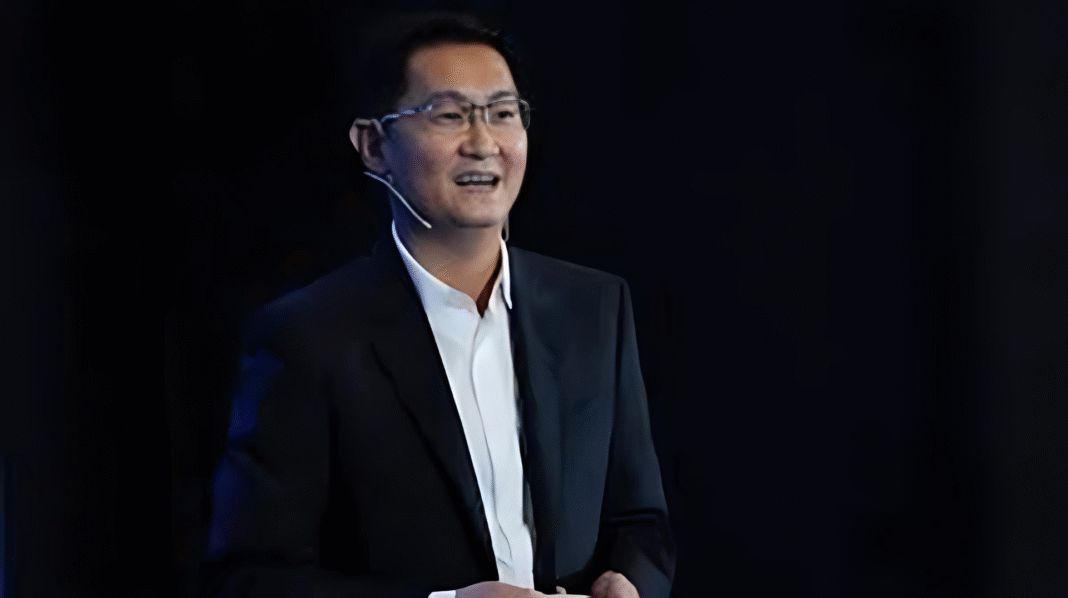Introduction
Pony Ma stands among the most influential figures in the global technology industry. As the co-founder and long-term CEO of Tencent Holdings, he has shaped the digital transformation of modern China and redefined how billions of people communicate, play, and do business. From his modest beginnings in Guangdong to leading one of the largest tech companies in the world, the journey of Pony Ma represents a combination of vision, discipline, and innovation.
This article examines the professional life of Pony Ma, his leadership philosophy, and the business strategies that established Tencent as a global power. It explores his early life, education, the founding of Tencent, and the evolution of his management style, offering educational insight for those studying technology entrepreneurship and strategic leadership.
Early Life and Education
Pony Ma Huateng was born in 1971 in Chaoyang, Guangdong Province. During his childhood, his family relocated to Shenzhen, a region that would later become the symbol of China’s technological rise. Growing up in this rapidly changing environment exposed Ma to the early wave of digital development that began shaping China’s economy in the 1980s.
After completing high school, Ma enrolled at Shenzhen University, where he earned a bachelor’s degree in computer and applied engineering in 1993. His university education was not merely academic; it was practical and exploratory. He developed a strong interest in programming, computer networks, and the emerging field of internet communications. These technical foundations would later play a vital role in his entrepreneurial ambitions.
During this time, Pony Ma began to realize that innovation required both creativity and discipline. His analytical mindset and curiosity about systems and code became the backbone of his future career.
Early Career and Inspiration
After graduation, Pony Ma joined China Motion Telecom Development, where he worked as a software engineer. His role focused on developing paging systems and communication software, giving him valuable exposure to how networks operate at scale. The position also introduced him to the limitations of China’s communication infrastructure at that time.
Ma quickly noticed a growing demand for user-friendly internet communication tools. Inspired by the popularity of ICQ, the first instant messaging platform developed in Israel, he saw an opportunity to create a local version tailored to Chinese users. This insight would eventually lead to one of the most successful startups in Asia.
The experience convinced Pony Ma that China was on the verge of a digital revolution. He realized that technology could change daily life, and that he wanted to build a company capable of leading that transformation.
Founding Tencent
In 1998, Pony Ma and Zhang Zhidong co-founded Tencent in Shenzhen with a small team of engineers. Their initial goal was simple: develop an instant messaging service for Chinese internet users. The first product, known as OICQ (Open ICQ), launched that same year and quickly gained popularity due to its simplicity and functionality. It allowed users to chat, share files, and connect online in real time—something revolutionary in China at the time.
Due to trademark concerns, the service was rebranded as QQ in 2000. Under Pony Ma’s technical leadership and business vision, QQ became more than a communication tool; it evolved into a digital ecosystem that included entertainment, personalization, and e-commerce features. By integrating virtual avatars, online chatrooms, and micro-payments, Ma successfully turned QQ into a cultural icon among Chinese youth.
The early years of Tencent were filled with challenges, including funding shortages and server limitations. However, Pony Ma’s persistence and belief in long-term scalability guided the company through its early obstacles. His combination of technical skill and business foresight helped Tencent secure venture capital and position itself for massive growth.
The Rise of QQ and the Power of Ecosystem Thinking
Pony Ma recognized early that user retention depended on creating value beyond communication. Under his leadership, Tencent began expanding QQ’s functionality by introducing games, music, and digital products. The company developed an internal digital currency, Q Coins, which users could use to purchase premium services and items. This innovation became a cornerstone of China’s virtual economy and an early example of monetization in online communities.
The integration of multiple services created what Ma later referred to as “ecosystem synergy.” He understood that users who interacted across multiple platforms chat, entertainment, and payment would remain loyal and increase engagement. This ecosystem approach would later influence all of Tencent’s major innovations, including WeChat and Tencent Games.
By 2004, Tencent’s user base exceeded 100 million, and the company went public on the Hong Kong Stock Exchange. The IPO marked a turning point for Pony Ma, establishing him as one of China’s most visionary entrepreneurs and solidifying Tencent’s position in the global technology market.
Leadership Style and Vision
Pony Ma’s leadership is characterized by quiet determination and analytical thinking. He is known for his humility and preference for staying out of the public spotlight. Unlike other high-profile founders, he rarely gives interviews or makes bold public statements. Instead, he focuses on internal innovation and strategic planning.
Within Tencent, Ma promotes a culture of experimentation combined with accountability. Teams are encouraged to test new ideas, learn from failure, and iterate quickly. This philosophy has allowed Tencent to remain innovative even as it scaled into a multinational corporation. Pony Ma’s leadership is not built on charisma but on consistent execution and technical excellence.
He often compares managing a technology company to engineering: both require precision, data-driven decisions, and continuous optimization. His pragmatic mindset has made Tencent one of the most stable and sustainable technology companies in China.
The Creation and Global Success of WeChat
Perhaps the most transformative project in Pony Ma’s career is WeChat, known domestically as Weixin. Launched in 2011, WeChat began as a simple mobile messaging app but evolved into a “super app” that integrated messaging, payments, e-commerce, and entertainment within one platform.
Pony Ma envisioned WeChat as a tool that would merge communication with daily life. Users could message friends, pay bills, book taxis, order food, and even invest—all without leaving the app. This seamless integration created a new model of mobile experience that many other global companies have since tried to replicate.
Under Ma’s guidance, WeChat introduced WeChat Pay, which revolutionized digital transactions in China. The platform became central to financial inclusion, empowering small businesses and consumers alike. Today, WeChat is used by over a billion people worldwide and remains one of the most influential mobile platforms in history.
You can read about other global founders similar to Pony Ma on this page.
The Expansion into Gaming and Digital Entertainment
Under the strategic leadership of Pony Ma, Tencent expanded aggressively into gaming, acquiring and partnering with leading developers around the world. The company became a majority stakeholder in Riot Games, the creator of League of Legends, and an investor in Epic Games, known for Fortnite. These moves positioned Tencent as the largest gaming company by revenue globally.
Pony Ma’s decision to invest heavily in digital entertainment was based on his understanding of social behavior. He believed that gaming was not just recreation—it was social interaction, storytelling, and community building. This insight allowed Tencent to bridge entertainment and communication seamlessly.
The success of Tencent Games reflects Pony Ma’s ability to combine cultural insight with strategic investment. By balancing creativity with structure, he built a global network that supports both independent developers and large-scale studios.
Investment Strategy and Startup Ecosystem
Beyond internal innovation, Pony Ma has played a major role in shaping China’s startup ecosystem through Tencent’s investment arm. The company has invested in hundreds of startups across industries such as fintech, healthcare, artificial intelligence, and retail.
Ma’s investment strategy focuses on partnership rather than domination. Tencent often takes minority stakes in promising startups, providing them with access to its resources, cloud infrastructure, and massive user base. This collaborative model fosters innovation across the broader technology landscape and builds a network of companies connected through Tencent’s ecosystem.
Prominent examples include Tencent’s investments in JD.com, Meituan, and Pinduoduo, all of which have become dominant players in their sectors. Through these partnerships, Pony Ma has indirectly shaped how millions of people shop, eat, and interact online.
Strategic Management and Innovation Philosophy
The innovation strategy of Pony Ma is grounded in adaptability and long-term thinking. He has always emphasized that technology should serve people’s needs and not simply follow trends. This user-first principle guided Tencent’s rise from a small startup into a global technology powerhouse.
Within Tencent, Ma implemented what he calls an “internal entrepreneurship model.” Teams inside the company operate like independent startups, each encouraged to innovate, compete, and iterate quickly. This model keeps Tencent agile and creative despite its massive size. The internal culture promotes both freedom and accountability, ensuring that only ideas with genuine user value move forward.
WeChat’s creation itself came from such an internal team experiment. Pony Ma supported the idea, even when initial projections seemed modest. His approach shows his willingness to invest in innovation without fear of short-term failure. This openness to experimentation has enabled Tencent to continuously produce transformative products and adapt to changing markets.
In addition, Ma’s decisions are deeply data-driven. He prefers strategic clarity over instinct, analyzing user behavior and technology trends before approving new ventures. This analytical rigor has protected Tencent from overextension and helped sustain its growth over decades.
Corporate Culture and Leadership Development
One of Pony Ma’s greatest achievements lies in shaping Tencent’s internal culture. He believes that innovation thrives in an environment of trust, learning, and collaboration. The company’s values center on openness, teamwork, and constant improvement. Employees are encouraged to take initiative, share ideas freely, and learn from mistakes.
Pony Ma often describes Tencent as a learning organization. Every success or failure is analyzed not as an endpoint but as a data point for improvement. This philosophy has built a resilient corporate mindset capable of adapting to technological disruptions and market challenges.
Leadership development is another critical area for Ma. Tencent identifies talented managers early and nurtures them through mentorship and training programs. This ensures the continuity of innovative thinking and a consistent corporate identity. Pony Ma personally participates in strategic leadership reviews, guiding future leaders toward long-term, sustainable visions rather than short-lived achievements.
He also delegates authority strategically. Instead of centralizing control, he empowers senior leaders and technical experts to make decisions. This structure reduces operational bottlenecks and keeps innovation close to those building the technology. Such distributed leadership is one reason Tencent maintains creativity even as a global conglomerate.
Pony Ma’s Role in China’s Digital Economy
The evolution of China’s digital economy is inseparable from the contributions of Pony Ma. His work with Tencent helped shape the nation’s internet infrastructure, from communication to payment systems and entertainment. He played a central role in redefining how Chinese citizens interact with technology in daily life.
WeChat Pay, for example, transformed the country’s financial habits. By integrating payment functions directly into WeChat, Pony Ma enabled seamless digital transactions between individuals, businesses, and institutions. The innovation went beyond convenience—it expanded financial access for millions of small merchants who had previously relied on cash.
Tencent’s cloud computing division also accelerated China’s digital transformation. It supports education, healthcare, and logistics through scalable infrastructure. Under Pony Ma’s leadership, Tencent Cloud became one of Asia’s leading service providers, empowering enterprises to embrace data analytics and artificial intelligence.
Beyond business, Ma’s initiatives have supported China’s transition into a smart and connected society. Through cooperation with government programs, Tencent contributes to areas like smart city development, digital governance, and environmental sustainability. Pony Ma views technology as a public utility one that must be used responsibly to improve human welfare.
Global Expansion and Strategic Investments
Although Tencent originated in China, Pony Ma always viewed it as a global company. He has pursued international expansion through strategic investments and partnerships instead of direct competition. This approach allowed Tencent to grow influence across global markets while respecting local ecosystems.
Under his leadership, Tencent became the largest video game publisher in the world, holding shares in major international companies like Epic Games, Riot Games, Ubisoft, and Activision Blizzard. These investments allowed the company to participate in global innovation networks without displacing local brands.
Pony Ma’s international strategy reflects his balanced view of globalization. He encourages cooperation rather than confrontation. Tencent’s overseas research centers collaborate with academic institutions and startups to explore emerging technologies such as artificial intelligence, data security, and health technology.
This cooperative model has enhanced Tencent’s global reputation as a technology investor with long-term vision. It also illustrates Pony Ma’s belief that sustainable growth depends on partnerships, not domination.
Personal Traits and Leadership Ethos
Despite his vast influence, Pony Ma remains known for his modesty and introspective nature. He avoids excessive media exposure and focuses on internal development. Those close to him describe him as methodical, disciplined, and deeply analytical. He is often seen reading technical documents, studying user behavior reports, or engaging in discussions with engineers rather than giving public speeches.
His engineering background has shaped his management style. Ma believes that successful leadership requires precision, logic, and humility. He avoids making impulsive decisions, preferring careful observation and data validation. This mindset has made him one of the most respected technology executives globally.
Pony Ma’s quiet but firm leadership demonstrates that influence can be achieved without constant visibility. His actions and results have defined his legacy more than his public image. He often reminds his teams that leadership is not about authority—it is about responsibility and service to users.
Lessons for Entrepreneurs and Startup Founders
Pony Ma’s entrepreneurial journey offers invaluable lessons for founders and innovators worldwide. His path from engineer to CEO reflects the mindset required to build sustainable technology enterprises. The most significant takeaways from his experience include:
-
User-Centered Vision: Every successful product begins with understanding user needs rather than following temporary trends.
-
Internal Innovation: Empowering teams to act like startups within a larger company preserves agility and creativity.
-
Strategic Patience: Long-term planning, even in fast-moving industries, ensures consistent growth and resilience.
-
Collaborative Ecosystems: Partnerships often lead to stronger innovation than isolated competition.
-
Responsible Growth: Technology must align with ethical standards and social benefit to sustain its success.
Pony Ma’s philosophy shows that entrepreneurship is not only about ambition but also about responsibility and continuous learning. For founders seeking inspiration, his example demonstrates how structure and vision can coexist with innovation and empathy.
You can find more founder profiles similar to Pony Ma’s story on this page.
Challenges and Adaptation
Even a visionary leader like Pony Ma has faced challenges. Tencent’s rapid expansion has brought scrutiny from regulators and competitors alike. Issues related to data privacy, gaming addiction, and market concentration have prompted tighter oversight in China’s tech industry.
Pony Ma has responded to these pressures with transparency and reform. He has emphasized the need for corporate responsibility, introducing robust data protection policies and parental control systems in Tencent’s gaming division. Ma supports regulatory cooperation, viewing it as an opportunity to create a safer, healthier digital ecosystem.
His ability to adapt Tencent’s strategy under evolving regulations reflects his flexibility as a leader. Rather than resisting change, he incorporates it into the company’s framework. This adaptability is one of the key reasons Tencent has remained stable despite global economic fluctuations and political challenges.
The Legacy of Pony Ma in the Global Tech Landscape
Pony Ma’s legacy extends far beyond the borders of China. His contributions have shaped the very structure of digital communication, social networking, and online entertainment worldwide. By integrating technology with everyday life, he has redefined how people connect, transact, and consume information.
He represents a new generation of global entrepreneurs who combine Eastern discipline with Western-style innovation. His approach to business methodical yet visionary has influenced many other Asian technology leaders. Through Tencent, Pony Ma built one of the world’s most interconnected digital ecosystems, one that continues to evolve with artificial intelligence, metaverse technology, and financial innovation.
Ma’s influence is also visible in the way modern companies balance innovation with responsibility. He has consistently advocated for ethical technology, data transparency, and the sustainable use of digital resources. These principles have positioned him not just as a business leader but as a thought leader in the global technology community.
Conclusion
The life and career of Pony Ma illustrate the evolution of modern entrepreneurship in the digital era. From a young engineer with limited resources to the leader of one of the world’s largest technology companies, his journey reflects persistence, vision, and disciplined execution.
Through Tencent, he revolutionized digital communication, entertainment, and financial systems, fundamentally transforming China’s role in the global economy. His leadership demonstrates that innovation flourishes when guided by humility, data-driven strategy, and a deep understanding of human needs.
Pony Ma’s story is not merely about corporate success it is about the responsibility that comes with technological power. His balanced approach to innovation and ethics serves as a blueprint for the next generation of entrepreneurs aiming to build impactful and sustainable technology businesses.
The legacy of Pony Ma will continue to shape how future innovators think, build, and connect in a world increasingly defined by digital transformation.





















































